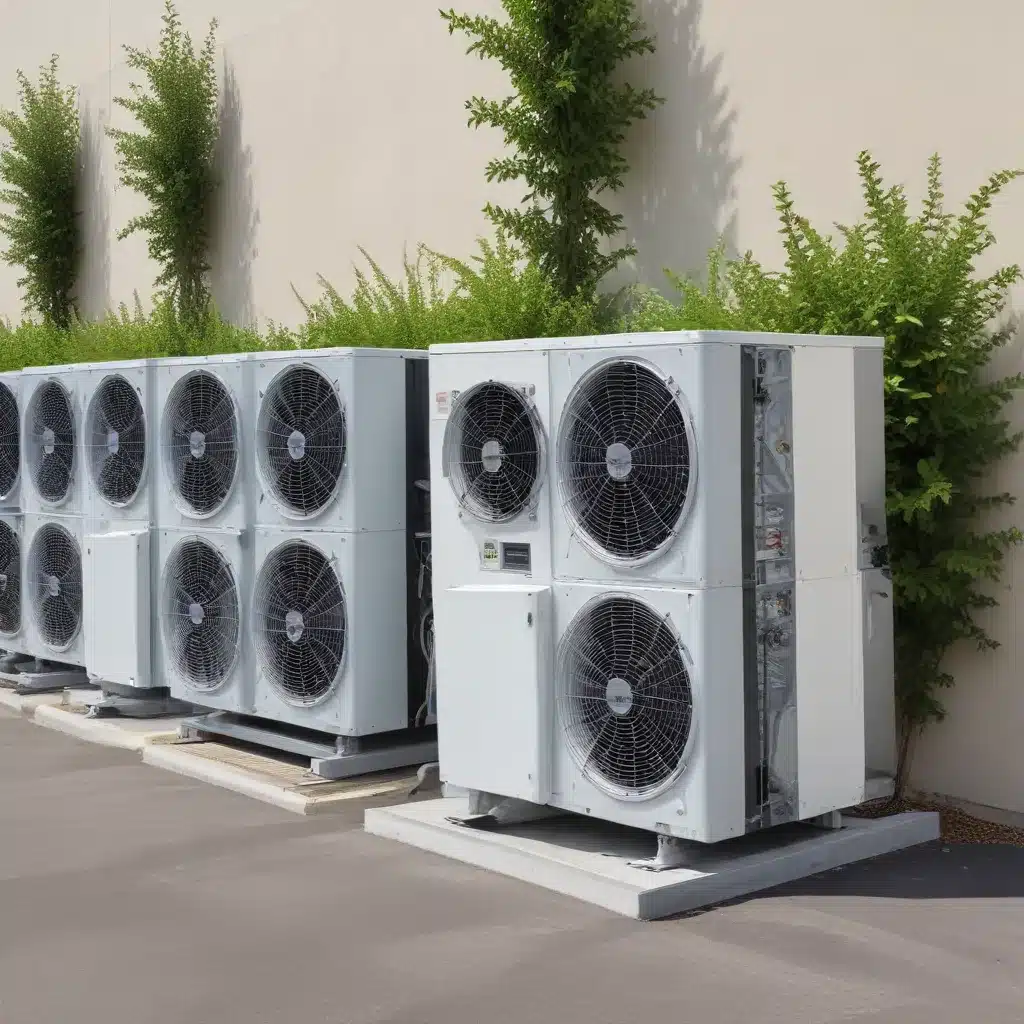
The Rise of Air-Cooled Heat Exchangers
As businesses and industries worldwide strive to reduce their environmental impact, the demand for eco-friendly cooling solutions has never been greater. Among the various cooling technologies available, air-cooled heat exchangers have emerged as a frontrunner, offering a host of benefits that align with sustainable environmental management practices.
Air-cooled heat exchangers, which use air as the primary cooling medium, have gained widespread popularity in recent years due to their energy efficiency, cost-effectiveness, and flexibility in installation. Unlike their water-cooled counterparts, these systems eliminate the need for water-intensive infrastructure, such as cooling towers and water treatment facilities, making them an attractive option for regions facing water scarcity.
The environmental advantages of air-cooled heat exchangers are numerous and far-reaching. These systems not only conserve water resources but also contribute to lower carbon emissions, making them a crucial component in the pursuit of a greener and more sustainable future.
Maximizing Energy Efficiency
One of the primary drivers behind the growing adoption of air-cooled heat exchangers is their impressive energy efficiency. While water-cooled systems may technically have a higher Coefficient of Performance (COP) due to the higher thermal conductivity of water, air-cooled systems make up for this through their simplified design and elimination of energy-intensive water-related components.
Air-cooled heat exchangers do not require the continuous water circulation and maintenance associated with cooling towers found in water-cooled systems. This effectively removes the additional energy consumption and operational costs required to power water pumps and maintain the water treatment infrastructure. Instead, air-cooled systems rely on efficient fans and optimized condenser coils to effectively dissipate heat, resulting in significant energy savings.
Moreover, the modular and scalable nature of air-cooled heat exchangers allows for tailored solutions that match the precise cooling needs of a facility, further enhancing their energy efficiency. By right-sizing the cooling capacity, businesses can avoid the energy wastage often associated with oversized or underutilized systems.
Conserving Water Resources
One of the most significant environmental benefits of air-cooled heat exchangers is their ability to conserve water resources. Traditional water-cooled systems require a constant supply of water for their cooling towers, which can be a significant drain on local water resources, especially in regions facing water scarcity.
Air-cooled heat exchangers, on the other hand, eliminate the need for water-intensive cooling towers, effectively reducing water consumption by a considerable margin. This water conservation directly contributes to more sustainable practices, particularly in water-stressed areas where access to fresh water is limited or costly.
Furthermore, the absence of water in air-cooled systems means there is no need for continuous water treatment, which can be both energy-intensive and environmentally demanding. This simplifies the maintenance requirements and further enhances the overall sustainability of the cooling solution.
Reducing Carbon Footprint
In addition to water conservation, air-cooled heat exchangers also play a significant role in reducing carbon emissions and mitigating climate change. By eliminating the energy-intensive components associated with water-cooled systems, such as water pumps and cooling towers, air-cooled heat exchangers contribute to a lower overall carbon footprint.
The reduced energy consumption of air-cooled systems directly translates to lower greenhouse gas emissions, as less fossil fuel-derived electricity is required to power the cooling operations. This alignment with sustainability goals is increasingly crucial as industries and governments worldwide strive to meet ambitious climate action targets.
Moreover, the versatility of air-cooled heat exchangers allows for their integration with renewable energy sources, further enhancing their environmental benefits. By coupling these systems with solar photovoltaic arrays or wind turbines, businesses can achieve truly eco-friendly cooling solutions that are fully powered by clean, renewable energy.
Reliability and Reduced Maintenance
Beyond their environmental advantages, air-cooled heat exchangers also offer enhanced reliability and reduced maintenance requirements compared to water-cooled systems. The elimination of water-related components, such as cooling towers and water treatment systems, significantly simplifies the overall system design and operation.
Without the need for continuous water circulation and treatment, air-cooled heat exchangers require fewer maintenance tasks, reducing the risk of system failures and downtime. This increased reliability and streamlined maintenance translates to cost savings for businesses, as well as a more consistent and efficient cooling operation.
Furthermore, the compact and modular design of air-cooled heat exchangers allows for easier installation and integration into various industrial and commercial settings, including those with limited space or water access. This flexibility further enhances the appeal of these eco-friendly cooling solutions.
Embracing the Future of Sustainable Cooling
As the world shifts toward a more sustainable future, the role of air-cooled heat exchangers in the cooling industry has become increasingly crucial. These innovative systems offer a comprehensive solution that addresses the pressing environmental concerns of water scarcity, energy consumption, and carbon emissions, all while providing reliable and cost-effective cooling.
By leveraging the natural, water-free cooling process of air-cooled heat exchangers, businesses and industries can contribute to a greener, more sustainable built environment. As the demand for eco-friendly cooling solutions continues to grow, air-cooled heat exchangers stand at the forefront, positioning themselves as essential components in the quest for a more sustainable future.
At https://www.aircooledheatexchangers.net/, we are dedicated to providing cutting-edge air-cooled heat exchanger solutions that cater to the evolving needs of our clients. Our team of experienced engineers and technicians work closely with businesses across various industries to design and implement customized air-cooled systems that optimize performance, enhance energy efficiency, and minimize environmental impact.
Whether you’re looking to upgrade your existing cooling infrastructure or explore new sustainable cooling options, we invite you to contact us to learn more about how air-cooled heat exchangers can transform your cooling operations and contribute to a greener, more sustainable future.

